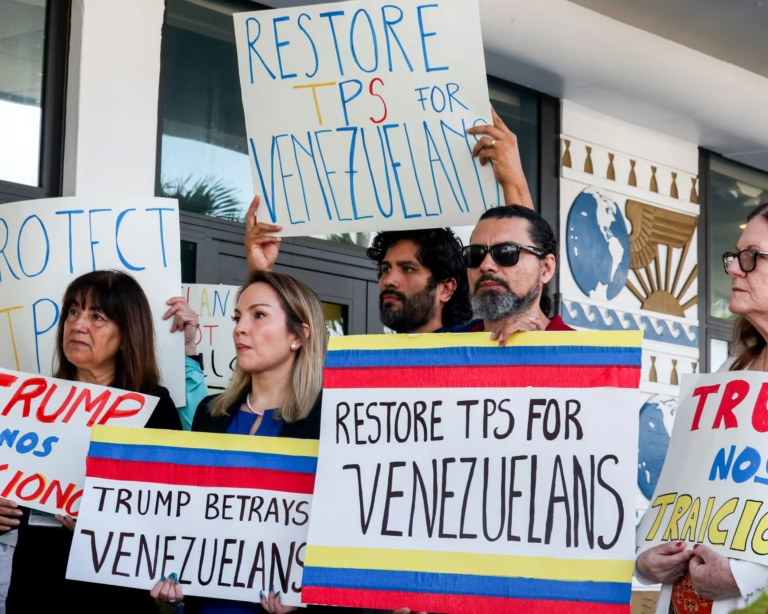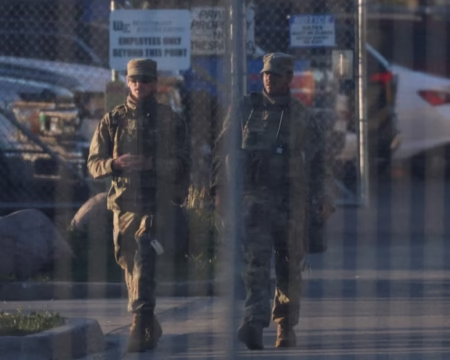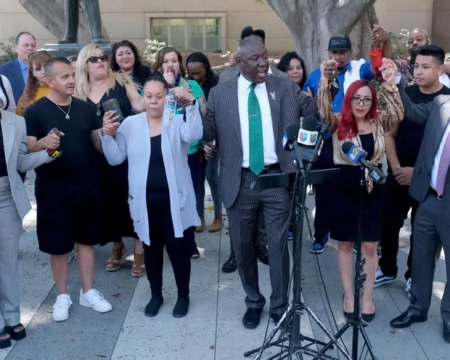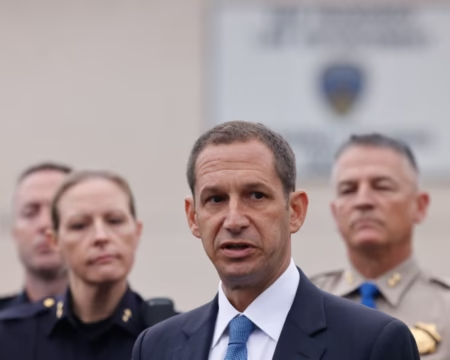The U.S. Supreme Court on Friday allowed the Trump administration to remove temporary protected status (TPS) from more than 300,000 Venezuelan migrants. The decision temporarily halts a lower-court ruling that had found the administration acted improperly in ending protections for these immigrants. Three liberal justices dissented from the order.
The emergency order will remain in effect while the court case continues. It puts on hold a ruling by U.S. District Judge Edward Chen of San Francisco, who determined that ending TPS for Venezuelans was unlawful. In his ruling, Chen criticized the Department of Homeland Security (DHS) for moving “with unprecedented haste” and acting in a preordained manner to terminate TPS for Venezuelan nationals.
TPS is a federal program created in 1990 to protect immigrants from deportation if their home countries face civil unrest, natural disasters, or other dangerous conditions. Under the program, individuals are allowed to remain and work legally in the U.S., with protections granted in 18-month increments.
The Trump administration’s move to withdraw TPS protections is part of a broader effort to end legal safeguards for immigrants. The administration has already ended or sought to end TPS for 600,000 Venezuelans and 500,000 Haitians, protections that were granted during President Joe Biden’s term.
In May, the Supreme Court blocked an earlier attempt to end TPS for another 350,000 Venezuelans. That decision provided no explanation, which is common in emergency appeals. On Friday, the court said in an unsigned order, “The same result that we reached in May is appropriate here.”
Lawyers representing the migrants told the court that many have already lost jobs and housing, while others have faced detention or deportation after the high court intervened the first time.
Justice Ketanji Brown Jackson dissented, criticizing the Supreme Court’s repeated interference in lower-court cases. She wrote that the order is “yet another grave misuse of our emergency docket” and said it puts lives at risk.
Lower courts have also noted irregularities in how DHS handled the termination of TPS for Venezuelans. In a separate ruling, Judge Kim Wardlaw wrote that DHS officials made decisions first and searched for a legal justification later. The appellate panel said Chen had correctly identified the administration’s “preordained purpose of expediting termination” of TPS.
Solicitor General D. John Sauer, representing the administration before the Supreme Court, argued that the May order should apply to this case as well. He said lower courts are increasingly ignoring the high court’s emergency docket decisions. According to Sauer, the new order prevents the “vacatur and termination of TPS affecting over 300,000 aliens based on meritless legal theories.”
TPS protections have been a lifeline for migrants from countries facing crises. Many Venezuelan migrants rely on TPS to work, pay rent, and support families in the United States. Advocates have warned that ending the protections could result in severe disruptions, including job losses, homelessness, and increased vulnerability to detention and deportation.
The legal challenge highlights the tension between executive authority and congressional intent. Congress designed TPS to provide temporary relief in times of crisis, yet the Trump administration has aggressively sought to narrow its scope. Courts have repeatedly scrutinized these efforts, raising questions about due process and administrative overreach.
The Supreme Court’s emergency order allows the Trump administration to continue its plan to strip TPS while the legal battle moves forward. The outcome could affect hundreds of thousands of Venezuelans currently living and working legally in the United States.
For now, TPS beneficiaries wait as the courts review the case. The decision underscores the fragile status of legal protections for migrants in the U.S., and the ongoing uncertainty for Venezuelans who have relied on TPS for safety and stability.







